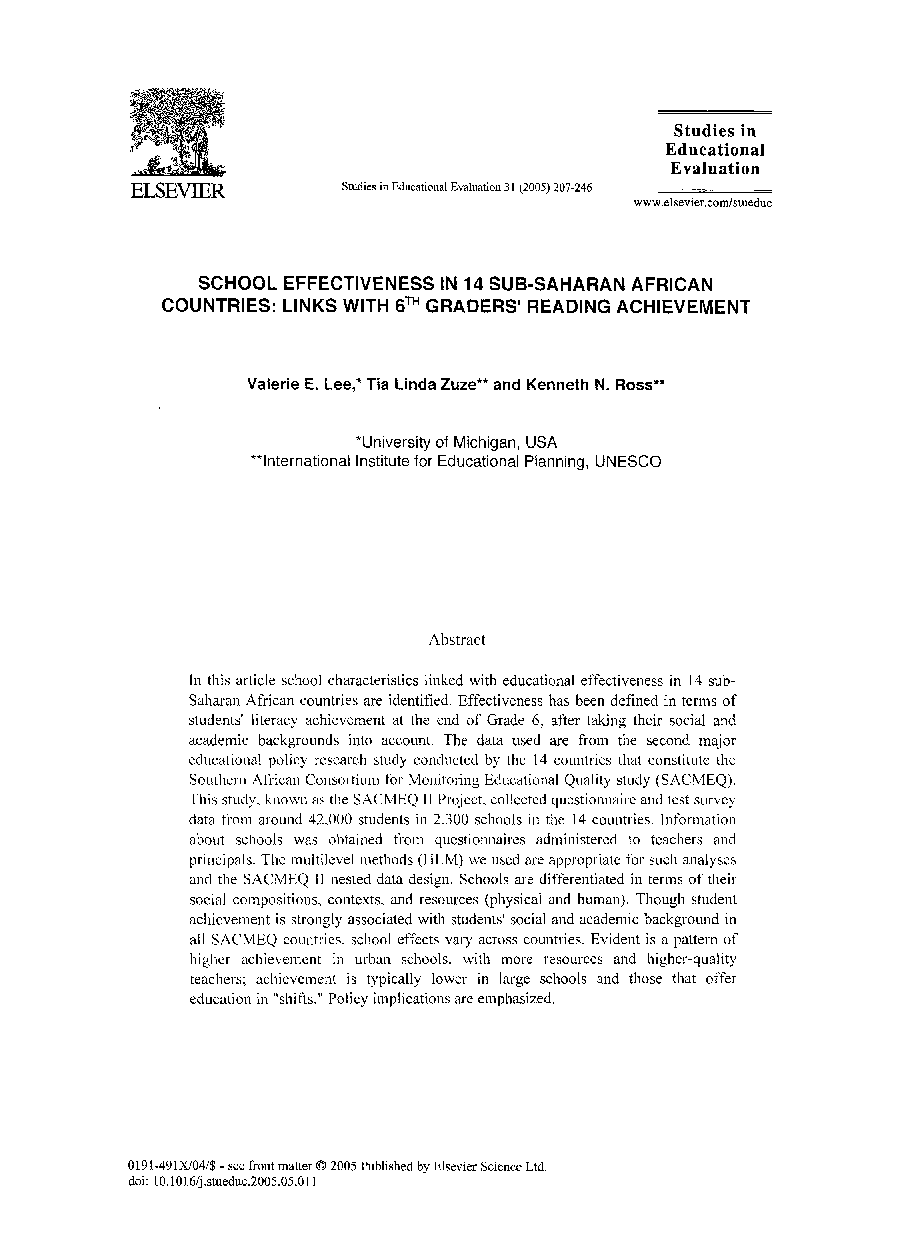| کد مقاله | کد نشریه | سال انتشار | مقاله انگلیسی | نسخه تمام متن |
|---|---|---|---|---|
| 9649841 | 622177 | 2005 | 40 صفحه PDF | دانلود رایگان |
عنوان انگلیسی مقاله ISI
School effectiveness in 14 sub-Saharan African countries: Links with 6th Graders' reading achievement
دانلود مقاله + سفارش ترجمه
دانلود مقاله ISI انگلیسی
رایگان برای ایرانیان
موضوعات مرتبط
علوم انسانی و اجتماعی
علوم اجتماعی
آموزش
پیش نمایش صفحه اول مقاله

چکیده انگلیسی
In this article school characteristics linked with educational effectiveness in 14 sub-Saharan African countries are identified. Effectiveness has been defined in terms of students' literacy achievement at the end of Grade 6, after taking their social and academic backgrounds into account. The data used are from the second major educational policy research study conducted by the 14 countries that constitute the Southern African Consortium for Monitoring Educational Quality study (SACMEQ). This study, known as the SACMEQ II Project, collected questionnaire and test survey data from around 42,000 students in 2,300 schools in the 14 countries. Information about schools was obtained from questionnaires administered to teachers and principals. The multilevel methods (HLM) we used are appropriate for such analyses and the SACMEQ II nested data design. Schools are differentiated in terms of their social compositions, contexts, and resources (physical and human). Though student achievement is strongly associated with students' social and academic background in all SACMEQ countries, school effects vary across countries. Evident is a pattern of higher achievement in urban schools, with more resources and higher-quality teachers; achievement is typically lower in large schools and those that offer education in “shifts.” Policy implications are emphasized.
ناشر
Database: Elsevier - ScienceDirect (ساینس دایرکت)
Journal: Studies in Educational Evaluation - Volume 31, Issues 2â3, 2005, Pages 207-246
Journal: Studies in Educational Evaluation - Volume 31, Issues 2â3, 2005, Pages 207-246
نویسندگان
Valerie E. Lee, Tia Linda Zuze, Kenneth N. Ross,